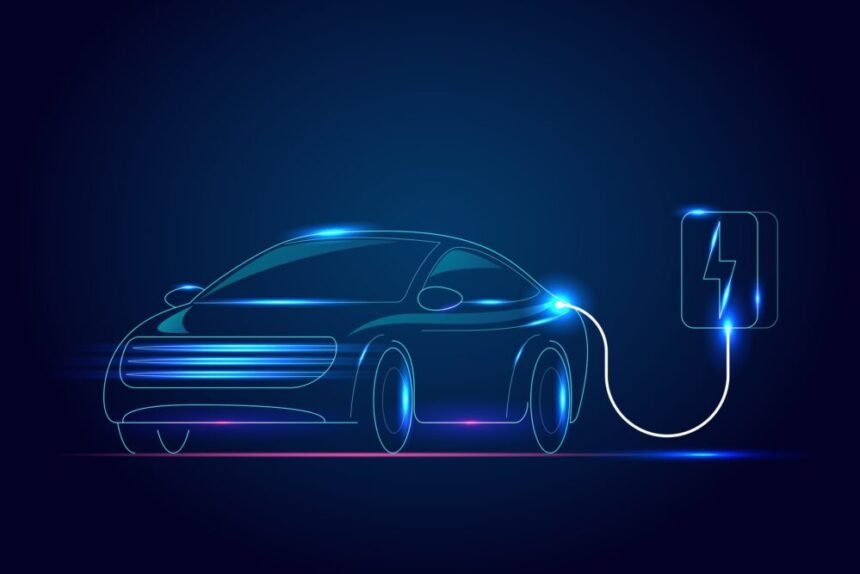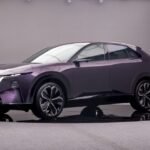In the rapidly evolving global electric vehicle (EV) market, Chinese brands have made a significant impact in the first quarter of 2025. According to the latest EV Volumes data, there has been a substantial growth in the sales of battery-electric vehicles (BEVs) and plug-in hybrids (PHEVs) during this period. The first quarter of the year witnessed a remarkable 34.9% year-on-year increase in EV deliveries, totaling 4.3 million units.
The momentum in the global EV market was evident from the sales figures in January, February, and March 2025. Sales surged by 22.1%, 49.9%, and 35.1% in these respective months compared to the same period in 2024. This positive trend contributed to a successful first quarter, although there was only a marginal change in the powertrain mix.
BEVs continued to dominate the market, accounting for 63.7% of all EV sales in the first quarter of 2025. This represented an increase from 62.4% in the same period last year, indicating a growing demand for all-electric vehicles. On the other hand, the global PHEV market share decreased by 1.3 percentage points to 36.3%.
Chinese brands emerged as frontrunners in the global EV market, with six out of the top 10 spots being occupied by these manufacturers. Leading the pack was BYD, which commanded a market share of 19.6% with 844,052 deliveries, marking a 4.1% year-on-year growth. Despite this positive performance, BYD’s market share slightly declined from the first quarter of 2024 due to heightened competition in the market.
To maintain its market position, BYD plans to introduce an affordable BEV, the e7 saloon, in China. Priced at around ¥103,800 (€12,800), this mass-market model aims to solidify BYD’s presence in the Chinese market. Moreover, the company is looking to expand its presence globally, with ambitions to sell half of its vehicles outside China by 2030. Expansions in Europe and Latin America are expected to drive this growth, with BYD focusing on establishing local supply chains and services.
Tesla, despite offering only BEVs, secured the second spot in global EV sales, with a market share of 7.8%. However, its deliveries dropped by 12.5% year-on-year to 337,697 units, leading to a 4.2 percentage point decrease in market share. The Model Y and Model 3 were the top-selling models for Tesla, while the Cybertruck saw a decline in sales over the first quarter of 2025.
Geely, with its strong performance, claimed the third position in the global EV market, with deliveries soaring by 274.6% year-on-year to 244,262 units. The company is expanding its market reach by entering new markets like Poland with models like the Geely EX5 electric SUV.
Wuling, including its Baojun brand, secured the fourth position with a 45% increase in sales to 166,417 EVs. The Wuling Mini was the best-selling model, underlining its popularity in the Chinese market.
BMW was the first European brand in the global EV top 10, ranking fifth with a 5.7% increase in sales to 132,987 units. The company is exploring solid-state battery technology to enhance the range of its electric vehicles without adding to the battery weight.
Volkswagen (VW) followed closely behind BMW, claiming the sixth spot in the global EV market. With the EV market continuing to expand and evolve, it will be interesting to see how these brands adapt to the changing landscape and consumer preferences in the coming months. In the first quarter of the year, the electric vehicle (EV) market saw impressive growth, with overall volumes increasing by 55.4% to reach 131,637 units. One of the standout performers was Volkswagen, which managed to catch up with its local rival by increasing its market share by 0.4 percentage points to 3.1%. The best-selling EV for Volkswagen was the ID.4, with a total of 31,711 units delivered between January and March.
Volkswagen’s ID. naming convention, which currently covers its family of battery electric vehicles (BEVs), may soon be coming to an end. Martin Sander, a member of the board of management for sales, revealed that their cars will “get proper names again”. This means that future models like the ID.2all and ID.Every1 will not follow the current naming convention in series production.
Another notable player in the EV market was the Chinese brand Chery, which finished in seventh place with 103,091 sales. This marked a significant growth of 188.1% in deliveries, allowing the brand to capture 2.4% of the market, up by 1.3 percentage points. The Chery Fengyun T6 PHEV was the brand’s best-selling EV, with 24,590 units sold alongside the Tansuo 06.
Li Auto secured the eighth spot with sales increasing by 11% to 98,709 units. Despite the growth, the brand’s market share decreased to 2.3% from 2.8% at the same point last year. EREVs accounted for the majority of Li Auto’s sales, with 97.6% of their vehicles featuring an engine-assist battery-electric system.
Xpeng claimed the ninth position with a 2.2% share of the global EV market, representing a significant increase of 1.5 percentage points. The brand’s sales soared by 321.7% to 96,663 units, with the M03 emerging as the best-selling BEV in the first quarter.
Rounding out the top ten was Mercedes-Benz, whose EV sales declined by 5.4% to 90,228 units. This decrease also led to a drop in market share by 0.9 percentage points to 2.1%. The EQB was the brand’s top-selling EV, with 12,927 units sold.
Overall, the EV market continues to show promising growth, with various brands making significant strides in expanding their electric vehicle offerings. With increasing consumer interest and government incentives driving the shift towards electric mobility, the future looks bright for the electrification of the automotive industry.







